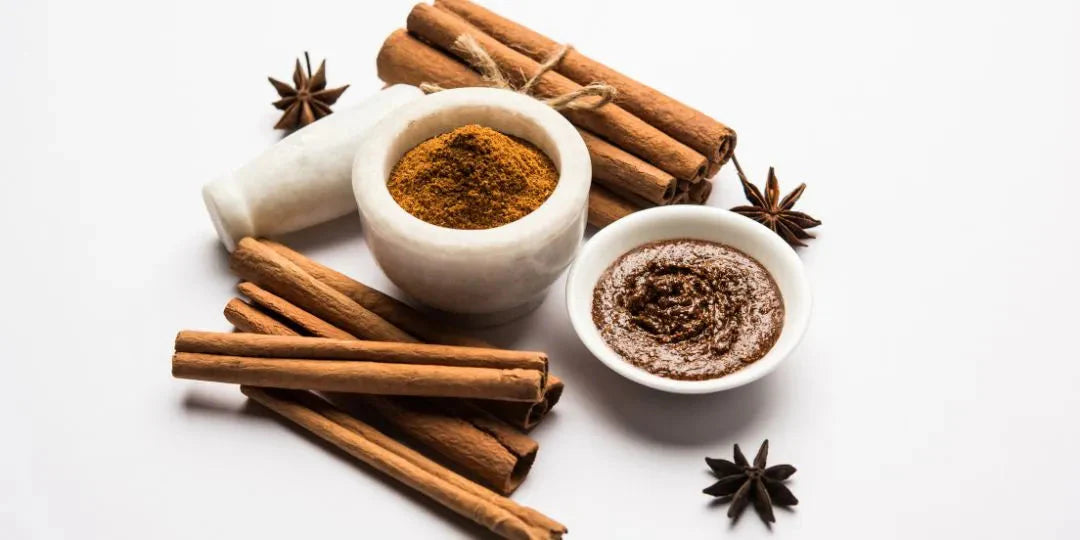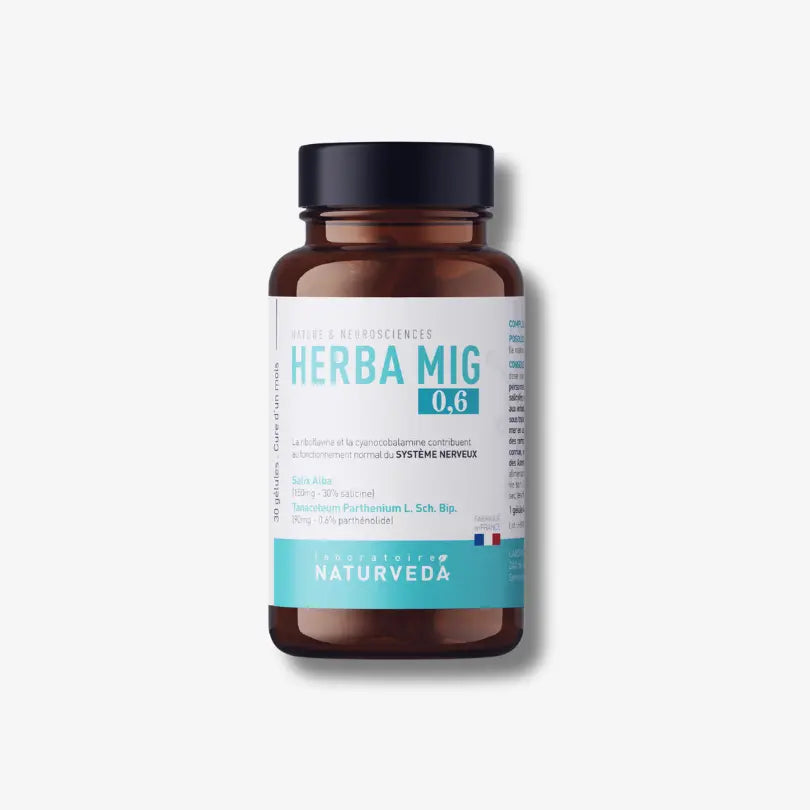Cinnamon, a spice prized for centuries for its captivating aroma and warm flavor, offers much more than culinary pleasures. Native to the tropical regions of South Asia, it has proven to be a treasure trove for health, with its antioxidant, anti-inflammatory and metabolic properties. In this article, discover in more detail the many facets of cinnamon's benefits for a healthier and more balanced life.
Cinnamon
What is cinnamon?
Cinnamon is a spice obtained from the inner bark of the cinnamon tree , a tree native primarily to Sri Lanka , but also cultivated in other tropical regions such as Indonesia, Vietnam, China, and Sri Lanka.
There are two main types of cinnamon: Ceylon cinnamon (or true cinnamon) and Cassia cinnamon (or Chinese cinnamon), which come from different species of cinnamon tree. Ceylon cinnamon is considered to be of higher quality and has a milder, more subtle flavor than Cassia cinnamon, which tends to be stronger and spicier.
Cinnamon is harvested by stripping the branches of cinnamon trees and removing the outer bark. The inner bark is then dried and can be used whole as cinnamon sticks or ground into powder.
Using cinnamon in cooking…
Cinnamon can be used in a variety of ways in cooking, depending on individual preferences and the dishes being prepared. Here are some of the common forms in which cinnamon can be used:
- Cinnamon sticks: These are great for infusing liquids such as milk, water, or sauces. They can be added whole to stews, casseroles, or hot drinks such as apple cider or mulled wine. Cinnamon sticks are also sometimes used as a garnish in desserts or drinks.
- Ground Cinnamon: This is probably the most common and versatile form. It can be sprinkled on a variety of sweet and savory dishes. Ground cinnamon is also used in many cooking recipes to add flavor and warmth.
- Cinnamon Extract: This is a concentrated alternative to cinnamon powder. It is often used in baking and dessert recipes to add an intense cinnamon flavor. You can use it to flavor creams, frostings, sauces, and hot drinks.
- Cinnamon essential oil: Highly concentrated, it should be used with caution. It can be added to some recipes to give an intense cinnamon flavor, but follow the recommended dilution instructions carefully, as it can be irritating to the skin and mucous membranes when used in its pure state.
…but not only that!
Apart from cooking, cinnamon can also be used in various other applications due to its health-promoting properties, pleasant fragrance, and traditional uses. Here are some alternative ways to use cinnamon:
- Aromatherapy: Cinnamon essential oil is often used in aromatherapy for its uplifting and comforting properties. It can be diffused into the air using a diffuser to create a warm and comforting atmosphere.
- Perfumery: Due to its distinctive and captivating aroma, cinnamon is frequently used in the manufacture of perfumes, massage oils, and other body care products for its comforting and soothing qualities.
- Natural Air Freshener: Cinnamon sticks can be used as a natural air freshener in a home. Boil a few cinnamon sticks in water to create a pleasant scent and eliminate unwanted odors.
- Natural Repellent: The strong scent of cinnamon can also act as a natural insect repellent. Sprinkle cinnamon powder on areas where you have problems with insect infestations, such as ants, to deter them.
- Dental care: Cinnamon has antibacterial and antifungal properties, making it a useful ingredient in natural dental care products. You can use cinnamon essential oil diluted in water as a mouthwash to freshen breath and help fight oral bacteria.
- Crafts and Decorating: Cinnamon sticks can be used in craft and decorating projects to add a rustic and aromatic touch. They can be strung together to form wreaths, used as a filling for candles, or incorporated into homemade potpourri.
The benefits of cinnamon
Cinnamon offers a range of health benefits, thanks to its antioxidant, anti-inflammatory and antimicrobial properties. Here in this second part are the main benefits associated with it, which make it a valuable spice to integrate into a balanced diet to promote optimal health.
Metabolic and glycemic support
Cinnamon is known for its potential to regulate blood sugar levels , especially in people with type 2 diabetes. Studies have shown that cinnamon can improve sensitivity to insulin, a hormone essential for regulating blood glucose, by supporting the uptake of glucose into cells. Additionally, it can reduce insulin resistance, a key factor in the development of type 2 diabetes. This action can help maintain stable blood sugar levels and prevent blood sugar spikes after meals.
When it comes to cholesterol, cinnamon also shows positive effects. Research suggests that it can help lower total cholesterol , especially LDL (bad) cholesterol and triglycerides. Reducing these is important because it can help reduce the risk of cardiovascular disease.
Antioxidant and anti-inflammatory properties
Cinnamon is rich in antioxidant compounds that help neutralize free radicals in the body. Free radicals are unstable molecules that can damage cells and contribute to premature aging and the development of chronic diseases such as cancer and heart disease. By protecting cells from free radical damage, cinnamon may help maintain overall health and prevent certain diseases .
Additionally, cinnamon has anti-inflammatory properties that can help reduce inflammation in the body . Chronic inflammation is linked to a number of health issues, including cardiovascular disease, autoimmune diseases, and digestive disorders. By reducing inflammation, cinnamon can help improve overall health and alleviate symptoms associated with these conditions .
Digestive and immune support
Cinnamon has traditionally been used to relieve digestive disorders such as bloating, gas, and indigestion. Its carminative properties help reduce intestinal gas and relieve digestive discomfort . Additionally, cinnamon has antibacterial properties that can help fight gastrointestinal infections and promote healthy gut flora.
When it comes to the immune system, cinnamon has antimicrobial potential that can help fight off pathogenic bacteria, viruses, and fungi. Its antimicrobial compounds can boost the body’s immune response and help prevent infections. By incorporating cinnamon into your daily routine, you can boost your immune system for a better defense against illness and infection .
Conclusion
Finally, cinnamon turns out to be much more than just a spice in our kitchens. Its antioxidant, anti-inflammatory and metabolic properties make it a valuable ally for health and well-being. Whether it's to regulate blood sugar, protect against chronic diseases, strengthen the immune system or just add a touch of flavor and comfort to our dishes, cinnamon offers a multitude of benefits. It's up to you to exploit them!






